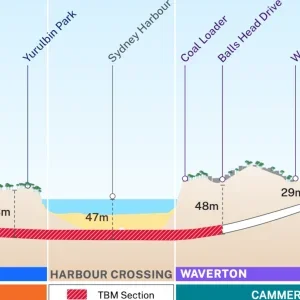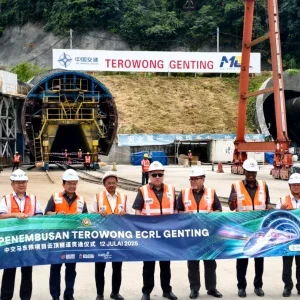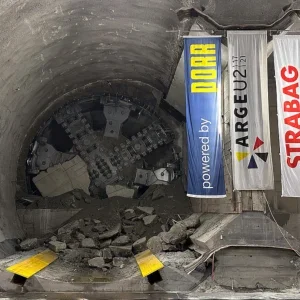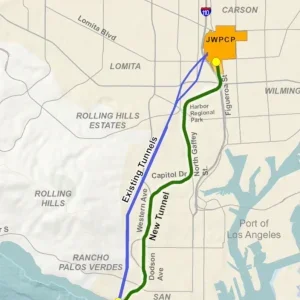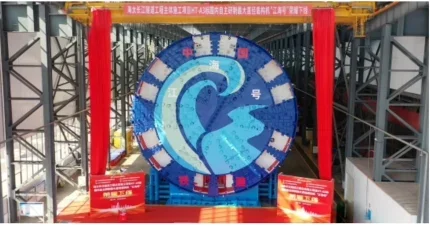
CRCHI says it is the largest diameter shield TBM produced in China.
The previous record was set by the 16m-diameter Jinghua, which is deployed on the Beijing East Sixth Ring Road Reconstruction Project.
This shield machine, named Jianghai, is approximately 145m long and weighs 5,000 tons. Jianghai is named by integrating the two concepts of crossing the Yangtze River and being adjacent to the sea in the Haitai Yangtze River Tunnel project. Its cutterhead is painted with rolling blue waves, symbolising that the shield machine will gather strength to carve out the tunnel below river and sea.
The Haitai Yangtze River Tunnel, in the Yangtze River estuary area of Jiangsu Province, will stretch from Haimen District in Nantong in the north and to Taicang City in Suzhou in the south. The total length of the bi-directional, six-lane highway is 39.07km, with a cross-river tunnel of 11.185km. The bored tunnel section is 9.3km long.
The tunnel will traverse complex geological belts such as silty clay, and silty clay interbedded with silt and fine sand. The maximum depth will be around 75m and the highest water pressure 7.5 bars.
CRCHI says there are “many uncontrollable unknown areas” along the alignment.
“How to ensure the continuous tunnelling of the entire machine for 9,315m in the complex environment at the bottom of the river while maintaining high-performance load is the main challenge and problem faced by the R&D team,” the company says.
To cope with the challenges, the TBM is equipped with a soft soil cutterhead with accessible cutterhead and alloy cutters that are large, hard, widely covered, and wear-resistant. The main drive has a telescopic function that can sense the overall force of the cutterhead, effectively avoiding abnormal force caused by overload of the main bearing under special circumstances, facilitating cutter change operations, and assisting the cutterhead to break out. It is equipped with a main drive status monitoring system to continuously monitor the operating status.
The Haitai Yangtze River Tunnel is due to be completed in 2028.



